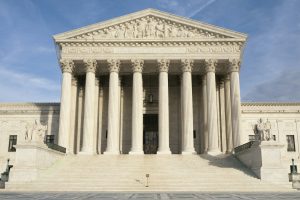The United States Supreme Court has agreed to hear a landmark case that could fundamentally alter the landscape of broadband funding nationwide. At the heart of this legal battle lies the Federal Communications Commission’s (FCC) Universal Service Fund (USF), an $8 billion annual program designed to ensure affordable access to telecommunications services for schools, libraries, healthcare providers, and rural communities. The Supreme Court’s decision to review the case stems from a contentious 2024 ruling by the Fifth Circuit Court of Appeals, which deemed the USF’s financing mechanism unconstitutional. This lower court decision challenged the very foundation of the fund, asserting that Congress had unconstitutionally delegated its legislative power to the FCC, effectively granting the agency unchecked authority in levying fees that support the USF.
The upcoming Supreme Court case centers on the delicate balance between Congress’s power of the purse and the FCC’s role as a regulatory agency. The USF, which collects contributions from telecommunications companies based on their revenues, has long been a critical component in bridging the digital divide, particularly in underserved areas. If the Supreme Court upholds the Fifth Circuit’s ruling, it could dismantle the current funding structure, potentially jeopardizing the future of programs that provide essential connectivity to millions of Americans. This ruling would also necessitate Congress to actively intervene and devise a new, constitutionally sound mechanism for funding these crucial initiatives.
This case, therefore, has far-reaching implications for the future of internet access and digital equity in the United States. A decision against the FCC could lead to significant disruptions in broadband service for vulnerable populations. It would force a complete overhaul of how the government funds its efforts to expand broadband infrastructure and affordability. The Supreme Court’s ruling will not only determine the fate of the USF. Still, it will also establish a crucial precedent regarding the limits of the Congressional delegation of authority to federal agencies, potentially impacting other regulatory bodies and their funding mechanisms. The outcome is eagerly anticipated by stakeholders across the telecommunications industry, education sector, healthcare community, and advocates for digital inclusion, as it will shape the future of broadband policy for years to come.
The Fifth Circuit Court ruled that the current funding structure violates the nondelegation doctrine, which limits how much legislative power Congress can delegate to federal agencies. “The FCC is acting without clear and specific guidelines from Congress,” the court stated in its ruling, adding that the funding mechanism lacked the necessary checks and balances to ensure accountability. (arstechnica.com)
FCC Chairwoman Jessica Rosenworcel welcomed the Supreme Court’s decision to hear the case, stating: “The Universal Service Fund has been a lifeline for millions of Americans in rural and low-income communities. This review allows us to clarify its legal foundation and secure its future.”
Advocates for the fund stress its critical role in closing the digital divide. According to the Rural Broadband Association, “The USF has enabled countless rural areas to access broadband and phone services that would otherwise be economically unfeasible. Any disruption to this funding could set us back years in our efforts to achieve universal connectivity.”
Suppose the Supreme Court upholds the Fifth Circuit’s decision. In that case, Congress may need to legislate new parameters for the FCC’s management of the USF, potentially disrupting subsidies relied upon by millions of Americans. Legal scholars also suggest that a ruling could set a significant precedent for the scope of agency powers in administering federal programs. (natlawreview.com)
The Supreme Court is expected to hear oral arguments in the coming months, with a decision likely by mid-2025. In the meantime, the FCC has stated that the USF will continue to operate under its current framework.
This case not only jeopardizes the future of the Universal Service Fund but also raises broader questions about the balance of power between Congress and federal agencies. The outcome could have far-reaching implications for other federal programs that depend on delegated authority to function effectively.



